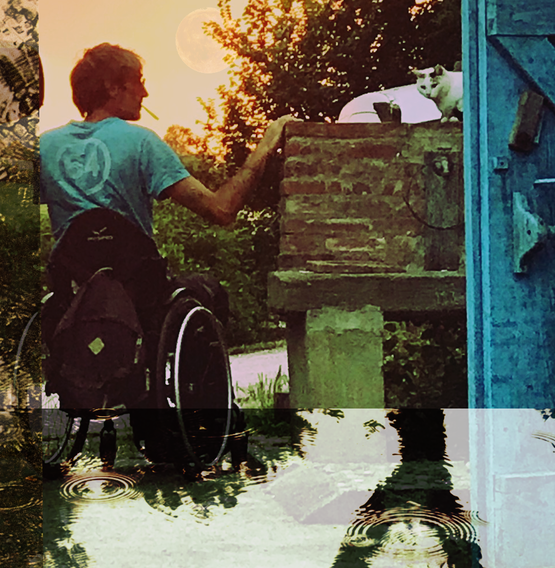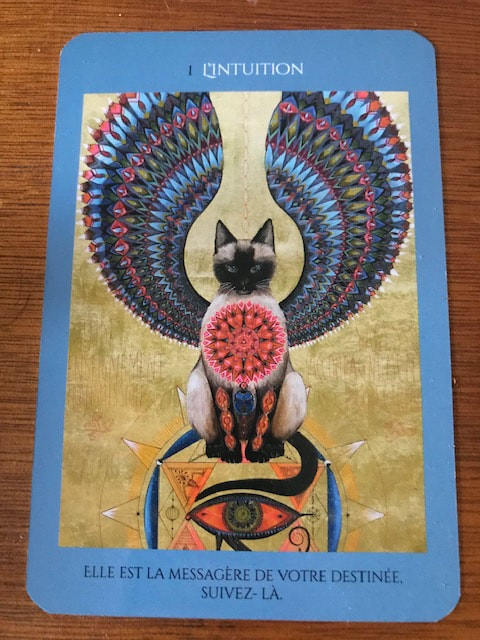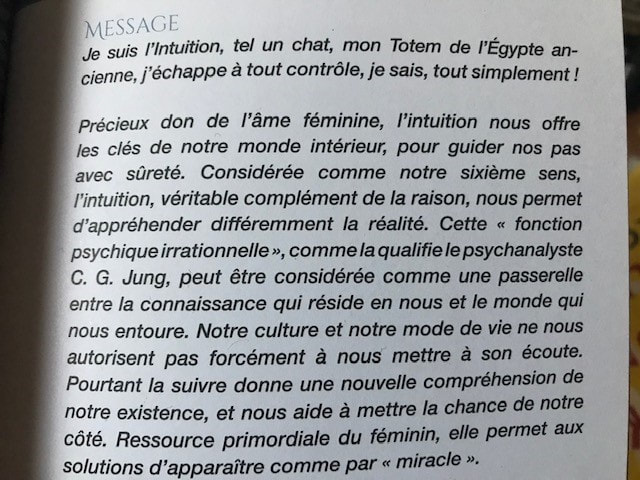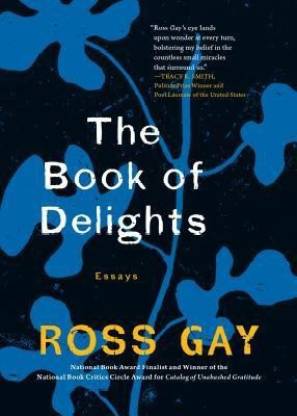|
[Collage by Shawnie Hamer] Hello, dear collective. I apologize about my absence for the last couple of months. It's been an upheaving time, to say the least. Not in just the negative ways (though that, too, has been the case), but also in the positive ones. Those blessings and visits that force you to stop with the in(s)ane attempts at control via worry, over-packed schedules, and monologues from our inner critics. And sometimes, even the devastating interruptions can help put life into a warmer, more peaceful perspective. Peace not necessarily being happy but, as Mark Nepo defines it in his book The Endless Practice: Serenity is the depth of being that holds difficulty, not the resting point after we’ve ended difficulty. And peace is the depth of being that holds suffering and doubt, not the raft we climb onto to avoid suffering and doubt. This leads us to joy, which is much deeper and larger than any one feeling. Can we experience joy in grief? Can we feel grief in joy? Absolutely. It’s the space I’ve occupied over the last two weeks since my dear friend, Jérôme, left this earthly realm quite suddenly. Friend is actually not an adequate enough word for this man who welcomed me to France, housed me, encouraged and guided the love and life I have with my partner, shared intimate conversations, lent an attentive ear, and helped teach me a new language--always with a wise word and a warm cup of coffee. He was the first connection I made here; he was my family. He irrevocably changed my life in just the three short years I knew him. And in his absence, I believe I understand what this quote, and ultimately my friend, was trying to teach us: you can trust yourself, even in pain. You see, Jérôme knew better than most what it was to live and to suffer. Naturally athletic, razor-sharp, and adventurous, he was always challenging himself and the norm. He was a social worker in both France and Tahiti, was a professional basketball player, an avid traveler, a veracious reader, a musician, and an activist. But when a motorcycle accident in his thirties took his ability to walk—an event he referred to once as a rebirth—his momentum vastly shifted. He redirected his rebellious spirit and fierce sense of justice towards fighting for accessibility for differently-abled people. He and his association once even peacefully occupied the runway of the Toulouse airport, blocking a departing plane, in protest of the lack of wheelchair accessibility in the airport, Air France flights, and Airbus airplanes. But more quietly, he enacted change in the lives of those around him every day. He was a beloved son, father, brother, and friend. His home and table were always open to anyone. Even his way inspired many. He was the most authentic, honest, and unapologetic person I’ve ever met. He was steadfast in his beliefs while always open to new perspectives. He taught me to how to just be, without performance. To be comfortable in silent moments. To sharpen my critical thinking beyond first interrogation. He was my compass here, in many ways, and his departure is intensely felt. I share the story of my friend with you, not only because I want you to know about this incredible man, but also because Jérôme was an Aries, the same sign as today’s Full Hunter Moon. And I think his very nature perfectly embodied the message this lunation is teaching us. As Sarah Vrba explains in her latest video, the shadow side of Aries is performative force. The healthy qualities of Aries, however, are pure intuition and being. Many people write about Aries full moons as a time for action and decision making, but it’s not the only form today’s cosmic energy can take. It can also come packaged as the ability to find space, a space made specifically for whatever you need to truly exist: space for grief, space for joy, space for surrender. Combined with the justice- and beauty-seeking energy of Libra season, this Hunter moon asks us not to push forward just because, but to use our sharp eye and intuition to make the most authentic decision for you. Oracle Card ReadingWhich is why it's no surprise that the card I drew for this offering, drawn from my newest oracle deck, L’Oracle des Femmes Médecine [The Oracle of Medicine Women] by Catherine Maillard and Caroline Manière, is Intuition: [She is the messenger of your destiny. Follow it.] In the accompanying book, the message for this card reads: I am intuition, like a cat, my Totem of Ancient Egypt, I am out of control, I just know. A precious gift of the feminine soul, intuition offers us the keys to our inner world, to guide our steps with safety. Considered as our sixth sense, intuition, a true complement of reason, allows us to apprehend reality differently. This "irrational psychic function", as the psychoanalyst C.G. Jung defines it, can be considered as a bridge between the knowledge which resides in us and the world which surrounds us. Our culture and our way of life do not necessarily allow us to listen to it. Yet following it gives a new understanding of our existence, and helps us to put luck on our side. A primordial resource for women, it allows solutions to appear as if by a miracle. Is the bridge between intuition and reason, between joy and grief, where we can truly be? I’d like to think so. Bibliomancy: The Book of Delights by Ross GayRoss Gay finds another way to guide us to this bridge. Full transparency: this isn’t bibliomancy, but rather something I read (and was struck by) while sitting in the same hospital Jérôme would die in a week later. A divine message, if you will. I’ve paraphrased and pieced together the parts of this chapter I wanted to share, though I highly recommend you read it (and the book) in its entirety:
“Joy Is Such a Human Madness” So writes Zadie Smith toward the end of her beautiful essay “Joy”… And given as I am writing a book of delights, and I am ultimately interested in joy, I am curious about the relationship between pleasure and delight—pleasure as Smith offers it, and delight. I will pause here to offer a false etymology: de-light suggests both “of light” and “without light.” And both of them concurrently is what I’m talking about, what I think I’m talking about, being of and without at once. Or: joy. Smith writes about being on her way to visit Auschwitz while her husband was holding her feet. “We were heading towards that which makes life intolerable, feeling the only thing that makes it worthwhile. That was joy.” … I have no children on my own, but I love a lot of kids and love a lot of people with kids, who, it seems to me, are in constant communion with terror, and that terror exists immediately beside…let’s here call it delight—different from pleasure, connected to joy, Zadie Smith’s joy, somehow—terror and delight sitting next to each other, their feet dangling off the side of a bridge very high up. … And the slipping child [who dies]—hand from a rung, foot from a rung—what metaphor the ladder?—how she seems to pierce us, drive a hole through us. A hole through which what. Here’s the ridiculous part. Is it possible that people come to us—I do not here aspire exactly to a metaphysical argument, and certainly not one about fate or god, but rather just a simple, spiritual question—and then go away from us-- I don’t even want to write it. Rather this: And what comes through the hole? … All angels remind us that annihilation is part of the program. And those terrible angels—the angel of annihilation—is a beautiful thing, is the maker, too, of joy, and is partly what Zadie Smith’s talking about when talks about being in joy. That it’s not a feeling or an accomplishment: it’s an entering and a joining with the terrible… Among the most beautiful things I’ve ever heard anyone say came from my student Bethany, talking about her pedagogical aspirations or ethos, how she wanted to be as a teacher, and what she wanted her classrooms to be: “What if we joining our wildernesses together?” Sit with that for a minute. That the body, the life, might carry a wilderness, an unexplored territory, and that yours and mine might somewhere, somehow, met. Might, even join. And what if that wilderness—perhaps the densest wild in there…is our sorrow? Or, to use Smith’s term, the “intolerable.” It astonishes me sometimes—no, often—how every person I get to know—everyone, regardless of everything, but which I mean everything—lives with some profound personal sorrow… Is sorrow the true wild? And if it is—and if we join them—your wild to mine—what’s that? For joining, too, is a kind of annihilation. What if we joined our sorrows, I’m saying. I’m saying: What if that is joy? (43-50) During this Full Hunter Moon in Aries, I invite you not to charge forward, not to run from your sorrow, your grief, your struggles, but to sit next to them on the bridge—between terror and delight, between intuition and reason, between the parts of ourselves, the true parts, and the ones we project or perform. Dangle your feet together. Wrap your arms around their shoulders with a deep knowing that you can, that you are, able to hold the complexities/pleasures/annihilations of this life. Channel your inner Jérôme. And maybe in this surrender, we'll discover a joy deep enough to harbor it all. I join my wilderness to yours.
0 Comments
Leave a Reply. |
Authorcollective.aporia Archives
May 2023
Categories
All
© 2019-2021 collective.aporia
|





 RSS Feed
RSS Feed
